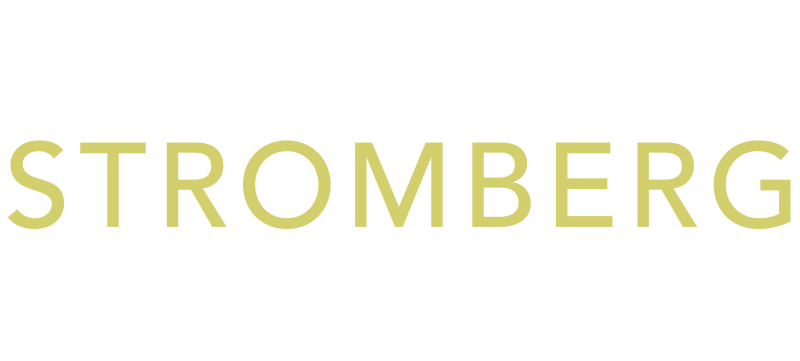The recent Saskatchewan King’s Bench decision in Levesque v Klarenbach, offers a reminder of the limits that some judges may impose on an application to compel disclosure from a power of attorney.
Background:
The background of Levesque involved the below facts:
- Darlene Levesque had brought an originating notice of application requesting an order for significant and detailed disclosure from Debra Klarenbach;
- Levesque sought an accounting in the prescribed form, and cited ss. 18, 18.1 and 20 of The Powers of Attorney Act, 2002, SS 2002, c P‑20.3 (“Act”), in support. She also sought a significant amount of additional disclosure beyond the prescribed statutory accounting form. For this request, she relied on the inherent jurisdiction of the court;
- The parties were both daughters of Arne Fredrich Petersen (“Deceased”), who died on October 2, 2022. Ms. Klarenbach was one of the executors of his estate along with Denis Blain and Mervin Schneider, the Deceased’s longtime accountant and friend;
- On August 10, 2017, the Deceased executed a Power of Attorney naming Ms. Klarenbach as his Personal and Property Attorney (“2017 POA”);
- Klarenbach provided the 2017 POA to RBC on September 17, 2017, at which time she obtained access to the Deceased’s personal chequing account. Ms. Klarenbach states that September 17, 2017, is the appropriate date for the commencement of the accounting period as she took no action with respect to the 2017 POA prior to that date;
- The Deceased further instructed in all of his Power of Attorney documents that, in the event of incapacity, no one could request an accounting from his Personal and Property Attorneys. When Ms. Levesque contacted Ms. Klarenbach on November 9, 2017, demanding an accounting, Ms. Klarenbach refused as she had not been authorized to do so by the Deceased, and as the Deceased was not incapacitated;
The death of the Deceased:
- Following the death of the Deceased, the executors applied for a grant of probate. Letters Probate were issued on January 16, 2023;
- On January 27, 2023, Ms. Klarenbach received a letter from counsel for Ms. Levesque requesting a final accounting. Ms. Klarenbach provided the prescribed Form K Final Accounting sworn on April 4, 2023, for the period of September 17, 2017, to October 2, 2022. Ms. Klarenbach provided values for the Deceased’s assets at the beginning of the accounting period, including his personal chequing account, his real estate holdings, his corporations, his personal investment accounts, and other personal property;
- Levesque remained dissatisfied with the responses provided by Ms. Klarenbach;
- Levesque sought additional disclosure from Ms. Klarenbach, and Ms. Klarenbach refused. It is within this context that Ms. Levesque has commenced this action for an accounting and significant additional disclosure.
Issue:
The Court held that issues before it were:
- For what period of time was Ms. Klarenbach required to account?
- Was Ms. Klarenbach required to provide the additional documentation and/or information requested by Ms. Levesque, in light of all the circumstances?
Decision of the Court of King’s Bench:
Issue 1: For what period of time was Ms. Klarenbach required to account?
Levesque asserts that the accounting period should have commenced from July 19, 2017, as opposed to September 17, 2017, which was the date that Ms. Klarenbach asserted. July 19, 2017 was the date on which Ms. Levesque believed that the Deceased lost capacity.
The Court held that there was no question that Ms. Levesque was entitled to a prescribed Form K accounting (“Prescribed POA Accounting”). The Court however held that it was undisputed that Ms. Levesque had in fact already received that Prescribed POA Accounting.
The parties disagreed as to the relevant accounting period, and the Court accepted Ms. Klarenbach’s evidence in this regard. As such, Ms. Klarenbach was obligated to provide an accounting for the period, post-dating September 17, 2017, where Ms. Klarenbach acted as an attorney. She was not required to account for anything before that date.
The Court decided that it would not, despite the request of Ms. Levesque, require Ms. Klarenbach to provide an entirely new accounting to include the two additional months (from July 19, 2017 to September 17, 2017). The Court found that Ms. Klarenbach did not exercise her power of attorney during that two‑month period.
Issue 2: Was Ms. Klarenbach required to provide the additional documentation and/or information requested by Ms. Levesque, in light of all the circumstances?
The Court then turned to the next issue, being whether Ms. Klarenbach should be required to provide certain additional documentation and/or information requested by Ms. Levesque.
The additional documentation requested by Ms. Levesque is set out below (this list is taken from the decision in Levesque, at paragraph 19):
- That the Respondent shall provide to the Applicant, and any professionals retained by her, with an authorization to obtain, review and make copies and inquiries of the institutions or professionals holding documents of which the Deceased had an interest, including through his corporations, during the accounting period, specifically including but not limited to the following:
(a) Bank statements and related cheques for the Deceased’s RBC personal chequing account no. 06278‑5658539 for July 19, 2017, to September 16, 2017;
(b) Any other credit card statements, banking statements and copies of cheques not already disclosed for July 19, 2017 to September 16, 2017.
(c) All investment statements from July 19, 2017, to October 2, 2022, inter alia:
(i) RBC Dominion RIF account no. 38124040;
(ii) RBC Dominion RIF account no. 38130219;
(iii) RBC Dominion TFSA account no. 79273541; and
(iv) RBC Dominion Investment account no. 76212392.
(d) Financial statement [sic], minutes and resolutions, and documents supporting the dissolution of the Deceased’s corporation from 2017 until their dissolution, including those corporations identified as:
(i) Elk Ridge Golf and Conference Ltd.;
(ii) A.F.P. Holdings Ltd.;
(iii) A. Petersen Investments Ltd.; and
(iv) 3080236 Nova Scotia Limited.
(e) Minutes and written documents that arose from the advisory committee to manage the Deceased’s corporate affairs as formed by Mervin Schneider, Dennis Blaine, Robert Connoly, and the Applicant.
(f) Any documents relating to the surrendering, payment or cancellation of any life insurance policy between July 19, 2017, to October 2, 2022.
(g) Any documents relating to the transfer or surrendering of lands between July 19, 2017 to October 2, 2022.
(h) Any receipts and invoices incurred on behalf or at the instruction of the Deceased by the Respondent from July 19, 2017 to October 2, 2022.
(i) Any other documents that pertain to actions taken on behalf or at the instruction of the Deceased by the Respondent as personal and property attorney.
And that in doing so, the Respondent shall take reasonable efforts to answer any questions that may arise from the review of those records.
- To the extent that the documents requested at paragraph 2 are only held by the Respondent, that she shall provide the records and documents sought to the Applicant directly and shall take reasonable efforts to answer any questions that may arise from the review of those records.
Some context as to why additional information is often requested, may help us understand why Ms. Levesque asked for this additional information.
A Prescribed POA Accounting, is certainly of some help to persons investigating what went on while a given person acted as power of attorney. The Prescribed POA Accounting is helpful in that it provides information on the value of assets before and after actions were taken by the power of attorney.
However, a Prescribed POA Accounting is limited in what it provides. First, it is filled out by the power of attorney. Thus, if someone has concerns about the accuracy of the information being provided by the power of attorney, a Prescribed POA Accounting does not itself independently verify the information.
Second, there is often no substitute for obtaining third party records that are more detailed than the ledgers contained in a Prescribed POA Accounting. These third-party records may include tax returns, monthly bank records, cheque images, investment statements, insurance documents, receipts, etc. Such records contain much more detail about the assets of a person, what happened to those assets in detail, and they also offer the assurance that third party records may be independently verified by the institution producing them.
Here, however, the Court declined to order the additional information sought by Ms. Levesque. The Court held that there was an insufficient basis to justify the requested additional disclosure, which was “over and above what is required by statute”:
[24] The applicant cites no statutory authority upon which the court could ground an order; she relies on “the inherent jurisdiction of the court” in making this request. This is a request for extensive disclosure, over and above what is required by statute, together with a positive obligation to explain that disclosure.
[25] Too often, parties rely on “inherent jurisdiction” to support arguments they cannot otherwise articulate. The inherent jurisdiction of the court is not a panacea. Counsel cannot rely on it to request any remedy not specifically set out in a statute. It primarily relates to procedural matters and can be relied upon when it is required to administer justice. …
The Court also appeared to be unwilling to put Ms. Klarenbach to the effort of gathering up the additional information, if Ms. Levesque had not first provided tangible evidence of wrongdoing by Ms. Klarenbach:
[28] An accounting by a power of attorney is an accounting for the actions of the attorney, not the actions of the grantee. Simply because Ms. Klarenbach was granted power of attorney during the lifetime of the Deceased does not require her to provide extensive disclosure of corporate documents under the control of the Deceased or explanations of business decisions made by the Deceased during his lifetime.
…
[30] Having reviewed the accounting provided, Ms. Levesque points to no evidence of malfeasance or misappropriation of funds. This request appears to be a fishing expedition based on vague assertions and many assumptions. This application seems to have arisen out of Ms. Levesque’s belief that her father had more assets or funds than what appears in the estate, likely coupled with the difficult relationship between the sisters as evidenced by the email correspondence. The evidence before me does not support her belief. Ms. Levesque cannot seem to fathom that the size of the estate is not as large as she believes it to be, despite the explanations from Ms. Klarenbach and Mr. Schneider. Under the auspices of s. 18.1 of The Powers of Attorney Act, 2002 and the inherent jurisdiction of the court, she seeks granular details of the Deceased’s financial affairs to satisfy herself.
The counsel whose position was not successful in Levesque was good and experienced counsel. The outcome in Levesque therefore shows how difficult it can be to predict what a Court may do, on applications seeking disclosure from a power of attorney, which go above and beyond what is in a Prescribed POA Accounting.
The judicial reasons given in Levesque show that there exists a difficult balancing act between the genuine wishes of a family member to investigate concerns, and, the right of a power of attorney to avoid (what the Court described as) a “fishing expedition” based on assumptions but not evidence.
Note: This article is of a general nature only and is not exhaustive of all possible legal rights or remedies. In addition, laws may change over time and should be interpreted only in the context of particular circumstances. This article is not intended to be relied upon or taken as legal advice or opinion. Readers should consult a legal professional for specific advice in any particular situation.
Contacting a Lawyer on this Subject
James Steele’s preferred practise area is estate litigation, including will challenges, executor disputes, power of attorney issues, etc. Contact James Steele at 1-306-933-1338 or j.steele@rslaw.com.


